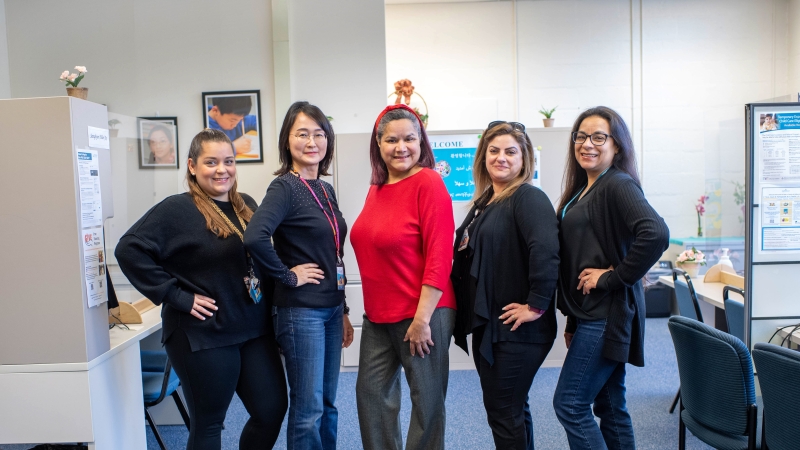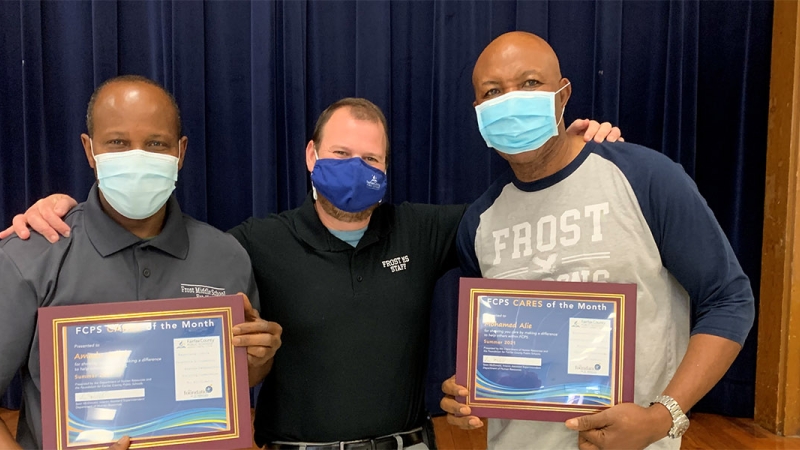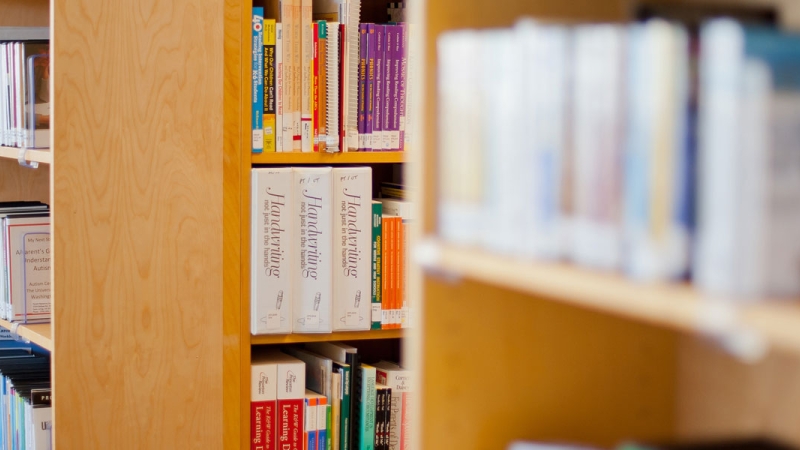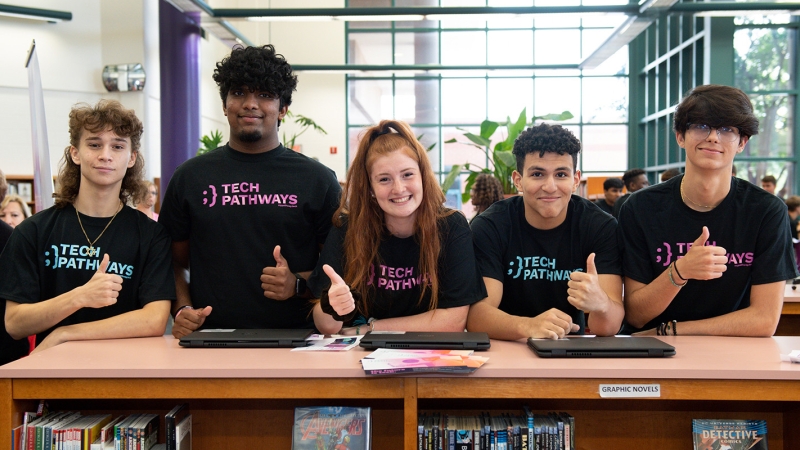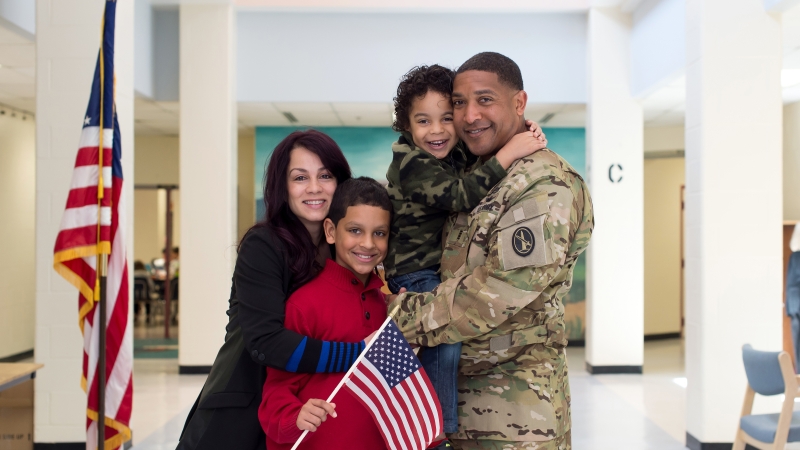
FCPS Nearly Doubles Arabic Language Course Enrollment Over Decade
Justice High School junior Jenna Kassem has been studying Arabic since her elementary school days. She stuck with it over the years because she wanted to be able to have deeper conversations in Arabic, hoping one day that she’d be able to discuss global concepts.
“Arabic is a very hard language because it isn’t used commonly in daily life,” Jenna says. “We don’t hear a lot of people speaking it around us so it is hard to practice speaking outside of the classroom. A good motivation for me is thinking ahead about how this could help me in the future be able to connect with more people around the world.”
Jenna is one of a growing number of Fairfax County Public School students who enroll in Arabic language instruction. In School Year 2012-2013, there were 435 FCPS students enrolled in Arabic 1-4 and International Baccalaureate Arabic courses. By School Year 2022-2023 there are 838 students enrolled in Arabic 1-4 and International Baccalaureate courses, almost doubling student enrollment in 10 years.
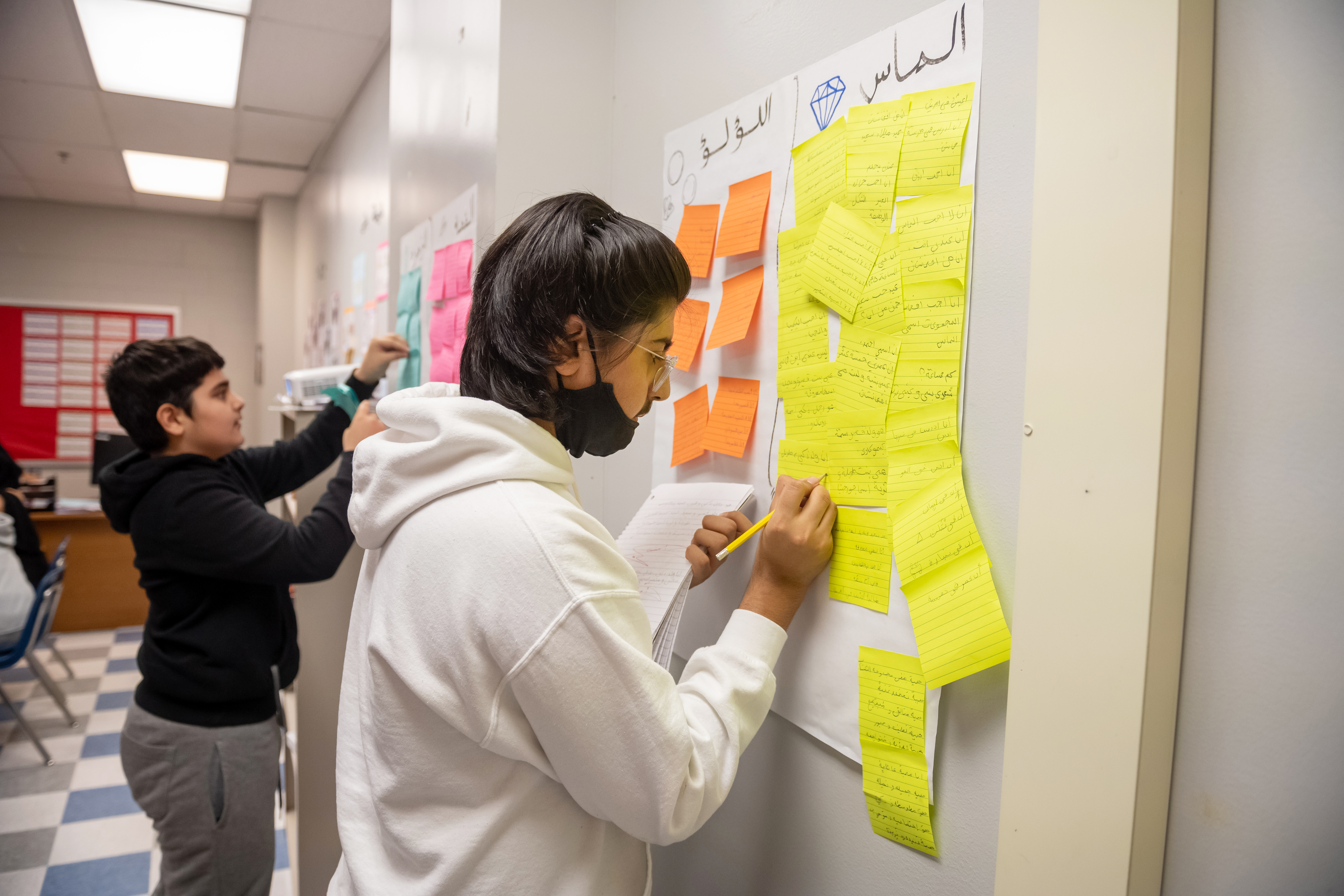
Some students, like senior Afnan Obeid, say they were drawn to Arabic courses because of their cultural roots. Afnan, who was born in the U.S., says her family’s heritage is from Yemen, but the Yemeni dialect she hears her parents speak at home is distinct from the modern standard Arabic taught at school.
“I stay motivated in learning Arabic when I see my mom and dad speaking to each other,” Afnan says. “I love how the letters look when written and pronounced. It’s interesting how Arabic has split into dialects and each person speaks it their own way.”
Justice High School Arabic instructor Nader Hussein says most of his students have “zero knowledge” of Arabic before enrolling in FCPS courses, and do not come from families who speak the language at home. Most of Hussein’s students, he says, are seeking international baccalaureate diplomas.
“We recognize the importance of bilingualism and multilingualism in today’s globalized world, and we strive to provide our students with the skills and knowledge they need to thrive in a diverse and interconnected world,” Hussein says.
The Justice HS Arabic language team acknowledges the difficulty of mastering Arabic for those without a background in the language, given the different alphabet, grammar and pronunciation from many languages.
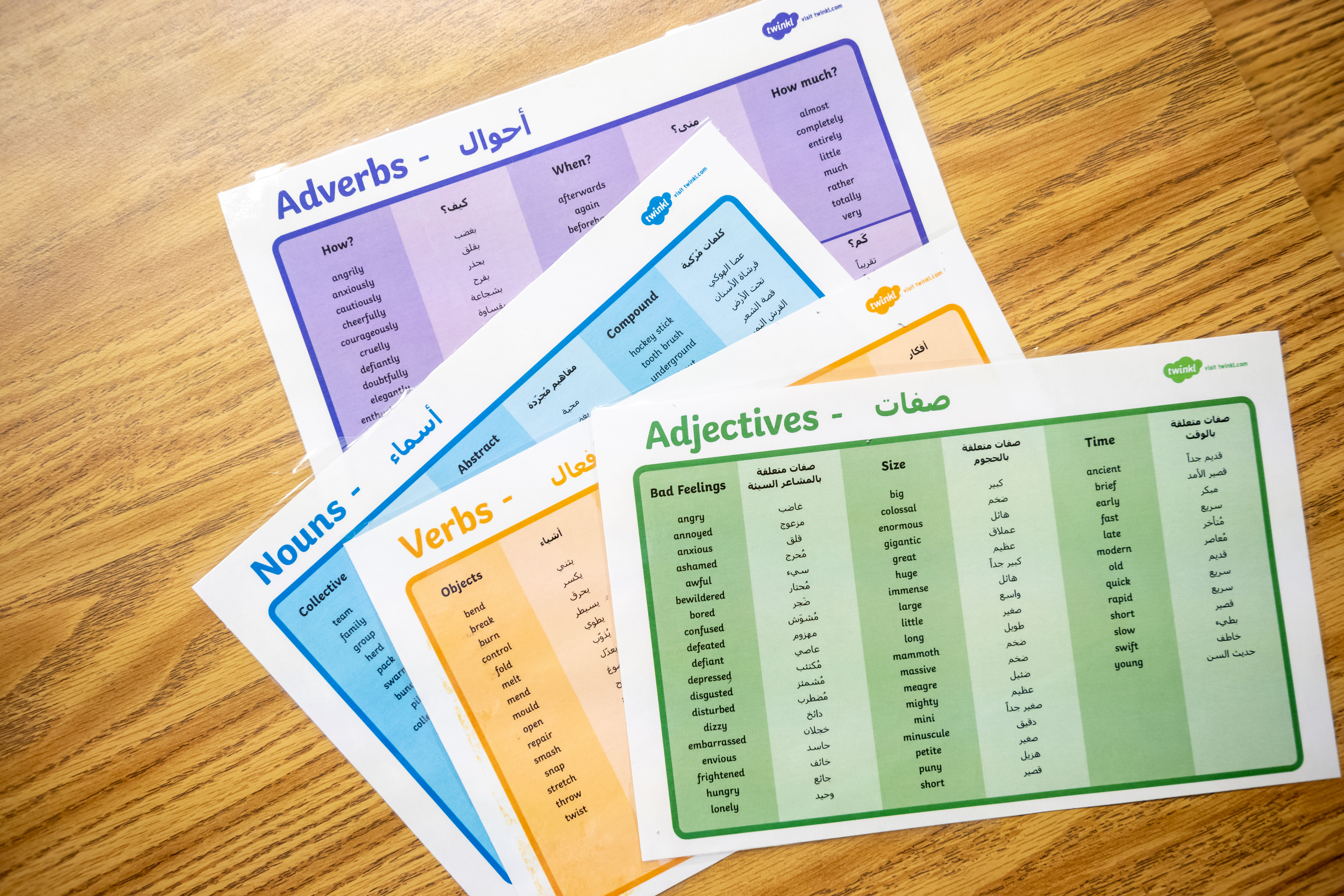
“Arabic uses a script that is written from right to left, the letters have different forms depending on their position in a word,” instructor Youssef Dardar says. “This can be intimidating at first, but with practice, anyone can learn to read and write in Arabic.”
Arabic team leader Wisam Moula has more than 16 years experience teaching Arabic in Fairfax County public schools. She credits the spike in Arabic course enrollment to dedicated teachers, parents who’ve lobbied for more access to Arabic offerings, and the instruction that can begin in elementary school – at Beech Tree Elementary School in Falls Church or Sleepy Hollow Elementary School in Falls Church – and continue through the international baccalaureate level. In addition to offering at Arabic at four traditional high schools within FCPS, the language is also offered at Glasgow Middle School as well as the online campus, Marshall Academy and Fairfax Academy.
She also devotes time to ensuring her students understand cultural trends where Arabic is spoken.
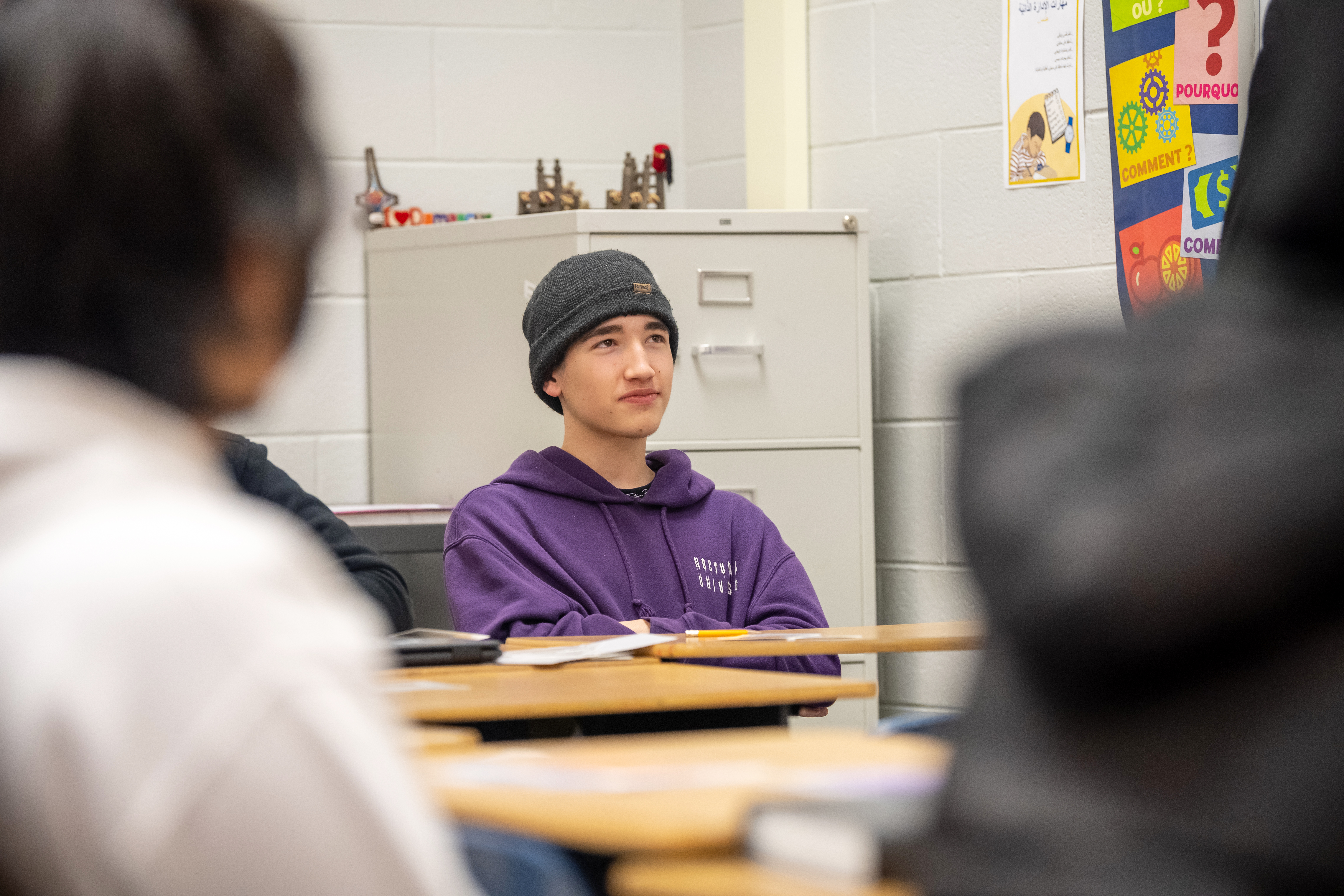
“Knowledge of Arabic paired with an understanding of cultural nuances is important to successfully navigate the challenges and opportunities of the Middle East and North Africa,” Moula said. “Speaking the language without speaking the culture will put the learner at a disadvantage.”
Over the years, Moula has incorporated cultural events into her instruction, which is cited by many Justice students as a highpoint of their coursework. They note watching movies in Arabic, writing literature reports, reading poetry, and debating current events like the impact of technology during the COVID-19 pandemic in Arabic as high-points of their coursework.
“At first the thought of presenting in Arabic in front of my classmates was daunting,” senior Baker Hasan says. “Ms. Moula never gave up on me, she encouraged me and gave me guidance that helped me practice my speech and how I pronounce words in Arabic. When the day of presentation arrived, I felt more confident and ready to show my Arabic skills. What made the memory more impactful is how it showed me, myself, how far I had progressed.”
Watch Middle East Broadcasting Networks coverage of the FCPS Arabic language program
Learn more about Arabic language offerings in FCPS

